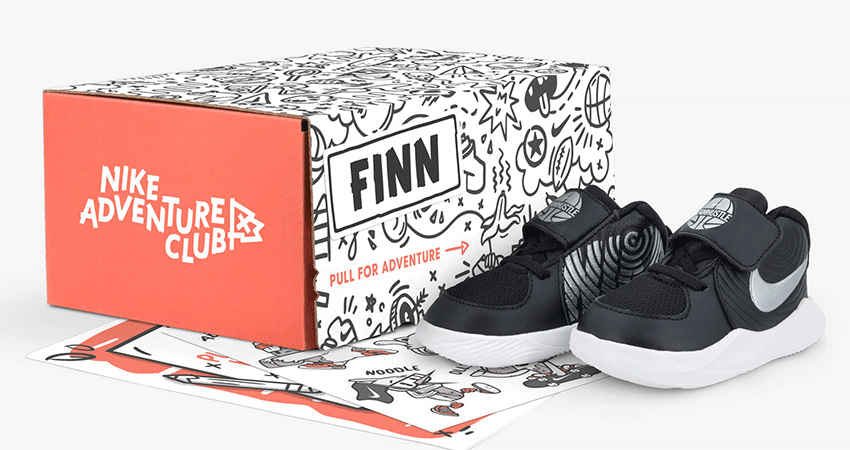Nike recently launched its Nike Adventure Club, a sneaker subscription service for kids aged two through 10. The company says it’s using the service to test out the subscription market before expanding it to runners and other athletes who need to replace their shoes frequently.
This move makes a lot of sense.
You might not know it unless you’re a hip young person (or an old person trying to stay hip!), but the sneaker wars are back in a big way.
Now, there’s always been pretty fierce competition between the various brands, but Michael Jordan really changed the game in the 1980s. Air Jordans were a huge deal to kids my age. That’s when shoes changed from being about brands and logos to being about aspirational figures, and even racial empowerment.
Today, all sorts of public figures have sneaker lines, not just athletes: Kanye West, DJ Khaled, Rihanna. Last year, Puma signed a deal with Jay Z, and nine months later, Adidas was partnering with Beyoncé. Kanye West’s Air Yeezy line, which started at Nike and is now at Adidas, is already ten years old. And Colin Kaepernick is obviously way more than just a former athlete.
Today, new digital marketplaces like Stadium Goods and StockX are going up against established brands like Foot Locker, and making a significant impact. This is an industry that’s poised to hit $95 billion by 2025. The resale market alone, powered by services like GOAT (a marketplace to buy and sell sneakers) is expected to hit $6 billion.
Which brings us to subscriptions, and Nike’s latest news. What’s going on here? What can retailers glean from the latest subscription announcement?
It’s Not About The Shoes
Well, it’s not about the shoes. It’s never been about the shoes. “I’ve said many, many times that our consumer is driven by cool,” said Foot Locker CEO Dick Johnson on a call with investors last year. And he’s absolutely right.
It’s always been about the identity that the shoes lend to the wearer. Yeezys and Jordans each have their own set of aspirations, attitudes, and aesthetics.
In fact, all the best consumer brands recognize that they’re not really selling products, they’re selling identities. Which is why they’re trying to move away from isolated transactions towards becoming a meaningful part of people’s lives on an ongoing basis.
Subscriptions create the powerful membership effect that reinforces that sense of identity consumers crave, while also providing powerful monetization opportunities for retailers across the board. Apart from Nike, we’ve even seen major retailers like Bloomingdale’s, Macy’s and Banana Republic move towards subscriptions.
It’s clear that success isn’t solely measured by products sold anymore. It comes from providing ongoing and valuable services and experiences.
And Nike has certainly set itself up for future growth with a solid foundation for a successful subscription program: it’s a trusted brand, it has an existing platform (website, app, NikeID) to digitally interact with customers, and it has identified a niche sub-set of customers to test new offerings against.
We’re in a new era: the Subscription Economy. Companies like Nike will continue to expand their market share and scale as they deliver personalized and convenient offerings catering to new consumer demands.
I predict that all the big shoe brands are going to start rolling out their own subscription programs within the next couple of years.
Why? Subscription companies have grown more than 300% in the past seven years. 300%! Let that sink in. What’s more, they are growing revenues about 5 times faster than S&P 500 company revenues and U.S. retail sales.
However, subscriptions alone don’t equate to success. Nike and all the other brands moving towards subscription business models must be willing to learn from their subscribers and make changes and adaptations over time to ensure the continued value of their services.
At the end of the day, not only is it about recurring revenue (and recurring kicks), but it’s also about using subscriptions to empower direct customer relationships.
Tien Tzuo, CEO and Co-founder of Zuora

